
For our 2024 rankings, the research team at Nursing Schools Almanac collected data on nearly 3,000 nursing schools and campuses throughout the United States. More than 1,100 of the institutions surveyed were private, including vocational and career schools, liberal arts colleges, and universities. We evaluated each school on three dimensions:
- The institution’s academic prestige and perceived value
- The breadth and depth of nursing programs offered
- Student success, particularly on the NCLEX licensure examination
We then combined these assessments into an overall score and ranked the schools accordingly. For a detailed description of our assessment methodology and dimension weights, please see here.
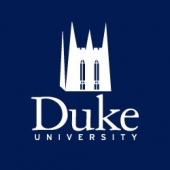
#1: Duke University
The National League for Nursing has designated the Duke University School of Nursing (DUSON) a Center of Excellence on six separate occasions. The school consistently ranks among the best in the nation in U.S. News & World Report’s top MSN and DNP programs. Indeed, DUSON was the first school in North Carolina to offer the doctor of nursing practice degree. Duke also graduates 120-150 students each year from its accelerated bachelor of science in nursing program. These students have passed the NCLEX exam at a stellar 98% first-attempt rate over the past decade.
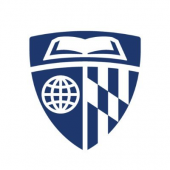
#2: Johns Hopkins University
The Johns Hopkins School of Nursing is ranked among the top three MSN, DNP, and online nursing programs by U.S. News & World Report. The school has also earned three consecutive NLN Center of Excellence designations for enhancing student learning and professional development. Johns Hopkins educates approximately 1,200 diverse nursing students, including 500 fulltime and 700 parttime students. The university recently transitioned from a prelicensure BSN program to a direct entry MSN program. The first five graduating classes of the direct entry MSN have scored a stellar 95% NCLEX pass rate. Johns Hopkins offers two other MSN tracks, a DNP with seven advanced practice specializations, and a doctor of philosophy (PhD) in nursing.
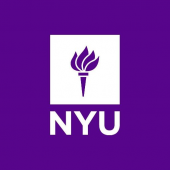
#3: New York University
U.S. News & World Report consistently ranks the adult-gerontology nurse practitioner programs at NYU Rory Meyers College of Nursing among the top ten nationally. The college is also sixth nationally in NIH nursing research funds awarded over the past decade, and NYU Meyers has twice earned a Center of Excellence designation from the National League for Nursing. In its flagship BSN program, the college graduates more than 400 students each year who have passed the NCLEX exam at an 87% first-try rate over the past decade. NYU Meyers also offers an MSN program with nine concentration options, post-master’s advanced certificates in eleven fields, a DNP degree with three entry paths, and a PhD in nursing research and theory development.
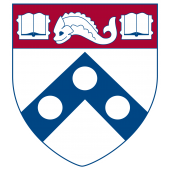
#4: University of Pennsylvania
Penn Nursing’s MSN degree is consistently ranked one of the top programs in the country by U.S. News & World Report. So too are five of its nurse practitioner specialty tracks in their respective categories. In addition, Penn Nursing has received the most NIH research funding of any nursing school in the country over the past five years, including more than $12 million in 2020. Graduates of Penn’s highly selective prelicensure BSN program have averaged a 93% first-time NCLEX pass rate over the past decade. At the doctoral level, the university offers a post-baccalaureate DNP in nurse anesthesia, two post-master’s DNP tracks, and a PhD program that broke ground as the first nursing doctorate in the Ivy League.
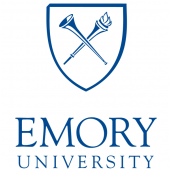
#5: Emory University
The Nell Hodgson Woodruff School of Nursing at Emory University is home to approximately 600 students enrolled in BSN, ABSN, MSN, PhD, and DNP programs. The university is consistently ranked among the top ten graduate nursing schools by U.S. News & World Report, including a number of highly rated specialty programs. At the undergraduate level, Emory produces approximately 200 BSN graduates annually who have passed the NCLEX-RN examination at a 92% rate over the past decade. The nursing school has an impressive 82% employment rate immediately after graduation, and students have landed positions at more than 500 diverse clinical sites nationwide.
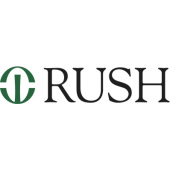
#6: Rush University
Since its inception, well over 7,000 baccalaureate, master’s, and doctoral students have graduated from Rush University’s College of Nursing. The college currently maintains a graduate enrollment of approximately 1,000 students, of whom 350 are studying fulltime. Rush’s direct entry MSN students have passed the NCLEX exam at an exemplary rate of 97% over the past decade. The Rush University Medical Center provides a rich environment where students of nursing, medicine, and allied health sciences learn in an interdisciplinary and dynamic setting.
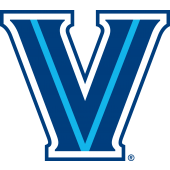
#7: Villanova University
Drawing on its Catholic beliefs and values, Villanova University has provided nursing education for over sixty years. The M. Louise Fitzpatrick College of Nursing typically has more than 700 students enrolled in its undergraduate program. These BSN graduates have exceeded a 94% first-time NCLEX pass rate for five consecutive years. Another 300 students are enrolled across Villanova’s MSN, DNP, and PhD programs. Designated a Center of Excellence by the NLN numerous times, the college boasts 7,000 alumni, 55% of whom live in the tristate area. Over 80% of the college’s fulltime and parttime faculty hold doctoral degrees.

#8: Columbia University
As part of Columbia University Irving Medical Center, Columbia Nursing enjoys a unique collaboration with the Vagelos College of Physicians and Surgeons, the Mailman School of Public Health, and the College of Dental Medicine. In fact, Columbia is one of eight nursing schools in the nation associated with a major academic medical center. Since its establishment in 1892, Columbia Nursing has graduated approximately 12,000 nurses. The school has a history of innovation: it launched the first master’s degree in clinical nursing in 1956, and it recently introduced a fifteen-month direct-entry MSN program for non-nurse college graduates. Columbia Nursing is proud to boast 38% ethnic diversity.
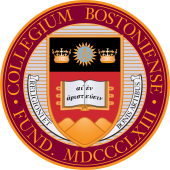
#9: Boston College
The William F. Connell School of Nursing is geared towards global diversity and social justice. The college’s nursing students enjoy a liberal arts education and receive a range of cultural healthcare perspectives, with access to six international locations. Approximately 100 BSN and 40 MSN students graduate from the school’s prelicensure programs each year. BSN students have maintained a strong 94% NCLEX pass rate over the past decade, while direct entry MSN students scored a perfect 100% pass rate in seven of the past ten years. The school offers a wide range of graduate programs, including certified registered nurse anesthetist (CRNA) and pediatric or psychiatric nurse practitioner (NP) options.

#10: Duquesne University
The School of Nursing at Duquesne University is recognized for creating Pennsylvania’s first BSN program in 1937 and the nation’s first online nursing PhD program in 1997. Duquesne has been designated an NLN Center of Excellence four consecutive times since 2008. In addition to its flagship BSN program, the university offers undergraduates an innovative five-year dual degree program in biomedical engineering and nursing. Duquesne’s BSN graduates have maintained a 91% first-time NCLEX pass rate over the past decade, including a 95.5% pass rate for the most recent graduating cohort. The School of Nursing also provides graduate programs at the master’s, post-master’s certificate, and doctoral levels, including both DNP and PhD options.
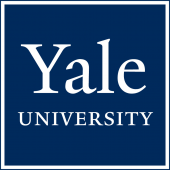
#11: Yale University
One of the first university schools to prepare nurses under an educational rather than apprenticeship program, Yale School of Nursing has educated health professionals since 1923. YSN maintains a consistently stellar NCLEX pass rate of 94-98% in its entry-level MSN program, and the school’s MSN and DNP offerings are both highly ranked by U.S. News & World Report. The university’s 400 nursing students interact with over 100 faculty members and 1,000+ preceptors focused solely on graduate nursing education. Yale is also one of the top recipients of nursing research funding from the National Institutes of Health, averaging $2.8 million annually in grants over the past decade.
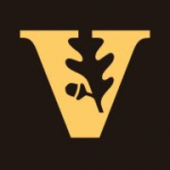
#12: Vanderbilt University
Vanderbilt University School of Nursing focuses solely on graduate nursing study. The university offers traditional and direct-entry MSN programs, eleven distinct post-master’s certificates for aspiring advanced practice registered nurses (APRNs), and two doctoral options (DNP and PhD). The direct-entry MSN program graduates approximately 150 new nurses annually who have passed the NCLEX exam at a 93% first-try rate over the past decade. Vanderbilt’s APRN specialties run the gamut from family nurse practitioner to nurse-midwifery to nursing informatics. The MSN program also partners with Vanderbilt Divinity School to offer two innovative dual degrees.
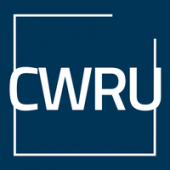
#13: Case Western Reserve University
The Frances Payne Bolton School of Nursing at Case Western Reserve University prides itself on innovation. The school was among the first in the country to offer several nursing programs, including acute care nurse practitioner, gerontological nursing, and doctor of nursing practice. It is also one of few private research universities to offer both a traditional four-year BSN degree and a direct-entry MSN pathway. BSN graduates have earned as high as a 97% pass rate in recent years. Case Western students benefit from their proximity to University Circle, a 550-acre scientific hub with numerous premier healthcare organizations. The school also has seven centers of excellence for nursing opportunities and experiences.
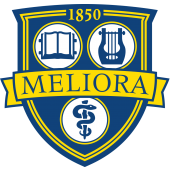
#14: University of Rochester
The University of Rochester School of Nursing prides itself on innovation in nursing education, including the country’s first acute care nurse practitioner program and its first center for nursing entrepreneurship. The school’s most recent initiative is its Council for Diversity, Equity, and Inclusion, which has helped Rochester to earn four consecutive Health Professions Higher Education Excellence in Diversity (HEED) awards. Over the past decade, 92% of students in the accelerated BSN program have passed the NCLEX licensure exam on their first try. The school also provides an online RN-to-BSN, an MSN with nine specialty tracks, a DNP with post-baccalaureate and post-master’s entry points, and a PhD in nursing and health science. Nursing students have access to the university’s state-of-the-art Clinical and Educational Resource Center as well as a 52-bed neonatal intensive care unit.
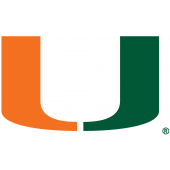
#15: University of Miami
The University of Miami School of Nursing and Health Studies (SONHS) is home to the Simulation Hospital for Advancing Research and Education (SHARE), one of the nation’s first education-based simulation hospitals. The school frequently ranks among the top 25 nursing schools nationwide in National Institutes of Health research funding. A member of the respected UHealth family, SONHS offers BSN, MSN, DNP, and PhD degrees. Post-master’s certificates are also available in several nurse practitioner specializations. The school graduates approximately 200 students annually from its flagship prelicensure BSN program. During the past decade, more than 95% of these students passed the NCLEX-RN licensure exam on their first try.
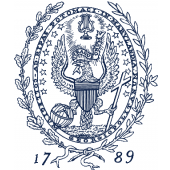
#16: Georgetown University
Georgetown University has educated more than 8,000 healthcare professionals since its nursing program was founded in 1903. The School of Nursing & Health Studies conducts a breadth of program offerings at the baccalaureate, master’s, and doctoral levels. Students in the school’s traditional four-year BSN program have a remarkable 97% NCLEX pass rate over the past decade. Graduates from the MSN-CNL track have performed even better, with a 99% NCLEX pass rate since the program’s inception. Georgetown also offers four MSN specialty tracks and two practice doctorates: doctor of nursing practice (DNP) and doctor of nurse anesthesia practice (DNAP). Students benefit from state-of-the-art facilities like the O’Neill Family Foundation Clinical Simulation Center and the Discovery Center.
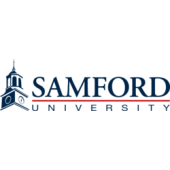
#17: Samford University
The Moffett & Sanders School of Nursing at Samford University is home to more than 700 nursing students. The undergraduate BSN program offers four education pathways, including a traditional four-year degree, standard and accelerated versions of the second-degree program, and a unique Veterans’ BSN. In total, Samford graduates over 100 newly minted RNs annually. These BSN students have passed the NCLEX exam at a 94% first-try rate over the past eight years, including an incredible 99% pass rate for the class of 2015. Samford’s graduate nursing curriculum includes specialty programs for family nursing practice, health systems and administration, nursing anesthesia, and nurse education.

#18: Drexel University
Drexel University’s College of Nursing and Health Professions has developed and refined more than 25 undergraduate and graduate nursing programs since 2002. The college currently includes more than 5,000 students, 200 full-time faculty, and 104 staff. Drexel graduates approximately 300-400 traditional BSN students each year with an exemplary NCLEX pass rate of 96% over the past decade. The college’s performance on numerous other board certification and licensing exams is well above average, including recent 100% pass rates for the physician assistant and nurse anesthesia programs.
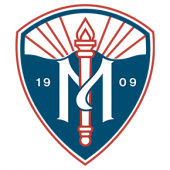
#19: Samuel Merritt University
Samuel Merritt University has prepared professional nurses for a century. Undergraduates can enroll in either a traditional or accelerated BSN program. Across the two pathways, SMU graduates 350-400 BSN students each year who have passed the NCLEX exam at an 89% rate over the past decade. Just as impressively, the school’s entry-level MSN program, which graduates 80-100 students annually, has an 88% NCLEX exam pass rate over that same time period. MSN students may prepare for careers as a case manager or family nurse practitioner. The university also offers a DNP degree with specializations in anesthesia, family nurse practitioner, and psychiatric-mental health nurse practitioner. All SMU nursing students have access to global medical mission opportunities as well as the Health Sciences Simulation Center, one of the region’s most advanced healthcare simulation facilities.
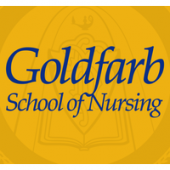
#20: Goldfarb School of Nursing at Barnes-Jewish College
Goldfarb School of Nursing at Barnes-Jewish College was the first school in the nation accredited by the National League for Nursing. The college has also been recognized as a Laerdal Center of Educational Excellence. Barnes-Jewish College conducts BSN, MSN, DNP, and PhD degree programs across two campus sites, one at Washington University Medical Center and one at Missouri Baptist Medical Center. Approximately 400 BSN graduates sit for the National Council Licensure Examination annually, and they have passed this test at a 90% first-try rate over the past decade. More than 40% of graduates land positions at Barnes-Jewish Hospital.
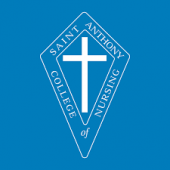
#21: Saint Anthony College of Nursing
Saint Anthony College of Nursing is a private Catholic college with a variety of regionally acclaimed nursing programs. Undergraduates can pursue a traditional BSN or RN-to-BSN pathway. Graduate nursing students have four MSN tracks (CNL, CNS, FNP, nurse educator) and four DNP specializations (CNS, FNP, AGPCNP, healthcare leadership) from which to choose. Saint Anthony’s BSN students earn consistently stellar scores on their licensure exams, passing the NCLEX exam at a 97% rate over the last decade, including a 99% pass rate three out of the last six years. Graduate students have performed similarly well on the APRN certification tests, including a 100% (nine out of nine) FNP pass rate for one of Saint Anthony’s recent MSN classes.
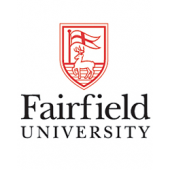
#22: Fairfield University
Fairfield University’s MSN and DNP programs are consistently ranked among the best in the nation by U.S. News & World Report. Their Master’s in Nursing Leadership program has also been recognized for its excellence by the American Association of Colleges of Nursing. The Marion Peckham Egan School of Nursing & Health Studies also offers both traditional and accelerated BSN tracks for undergraduate students. Prelicensure BSN graduates have passed the NCLEX exam at approximately a 90% first-try rate over the past decade.
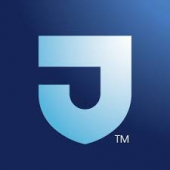
#23: Thomas Jefferson University
Jefferson College of Nursing is one of six colleges dedicated to health sciences education and research at Thomas Jefferson University. Undergraduate students can select from a traditional BSN track and two accelerated pathways. The college graduates 250-300 BSN students in total each year, with an admirable 89% first-time NCLEX pass rate over the past decade. Jefferson also offers an extensive range of graduate nursing programs, with eight distinct specializations available at the MSN and doctoral levels. Students benefit from access to Thomas Jefferson University Hospital, one of the top-ranked hospitals nationwide. The American Nurses Credentialing Center has recognized Jefferson for its quality patient care, nursing excellence, and innovations in professional nursing.
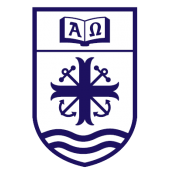
#24: University of Portland
The University of Portland School of Nursing awards BSN, MSN, and DNP degrees. The baccalaureate program incorporates study abroad experiences in countries like Australia, Italy, the United Kingdom, and Tanzania. UP produces approximately 200 BSN graduates annually who have averaged a solid 89% NCLEX pass rate over the past decade. The graduate program employs a convenient hybrid delivery model of monthly immersion weekends and online learning modules. UP offers an MSN degree with clinical nurse leader and nurse educator tracks, as well as a DNP program with a family nurse practitioner population focus.

#25: Northeastern University
Northeastern’s School of Nursing, part of the Bouvé College of Health Sciences, provides students broad interaction across Bouvé’s entire faculty. The school maintains a strong focus on research and an interdisciplinary approach to healthcare. Indeed, Northeastern was designated an NLN Center of Excellence in 2013 for enhancing student learning and professional development. Prelicensure students perform very well on the NCLEX exam. The school’s BSN program posted a 91% pass rate over the past decade, while its direct entry MSN program scored a phenomenal 96% pass rate over that time period. Northeastern also offers an online RN-to-BSN program, an MSN curriculum with six nurse practitioner specialties, two doctoral nursing degrees (PhD and DNP), and a nurse anesthesia program.
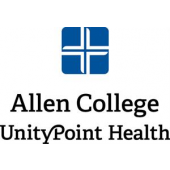
#26: Allen College
Allen College graduated its first DNP class in 2013. The school also offers four nurse practitioner tracks in its MSN program, including adult-gerontology acute care, adult-gerontology primary care, family practice, and family psychiatric mental health. The school’s baccalaureate program has three prelicensure tracks (traditional, accelerated, and LPN-to-BSN) and two postlicensure tracks (RN-to-BSN and public health). BSN students have the option to earn a minor in the pioneering area of population health. Allen College produces 100-125 prelicensure BSN graduates annually, and these students have passed the NCLEX exam at a stellar 94% rate over the past decade.
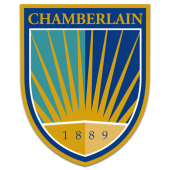
#27: Chamberlain University
Founded in 1889 to address a lack of healthcare services, Chamberlain University continues to increase access to nursing education nationwide. Chicago is just one of over twenty Chamberlain locations across the country. The school offers a three-year BSN program, geared towards students who want to accelerate their degree with summer study. The Chicago campus graduates hundreds of new nurses annually, by far the largest prelicensure BSN program in the state. Despite the school’s size, students receive highly individualized attention, enabling them to pass the NCLEX exam at an 84% rate over the past decade. At the graduate level, Chamberlain University offers a fully online MSN program with tracks for nurse educators, nurse executives, nursing informatics, healthcare policy, population health, and several nurse practitioner specialties. Each MSN track is also available as a standalone graduate certificate. Finally, Chamberlain offers a post-master’s DNP with leadership-themed elective focus areas in advanced practice, education, and healthcare systems.
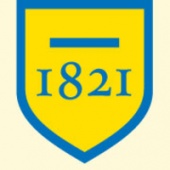
#28: Widener University
Formerly the Crozer College of Nursing, Widener’s School of Nursing opened in 1966 and marked the first time women were admitted as students. The school graduates 100-150 BSN students annually, and they have passed the NCLEX exam at rates as high as 90% in recent years. Widener is particularly recognized for its graduate nursing programs: the school offers five specialty master’s tracks, two doctoral programs (DNP and PhD), and three accelerated graduate options. Students at Widener enjoy an 8:1 student-to-faculty clinical ratio and state-of-the-art facilities at the Center for Simulation and Computerized Testing.
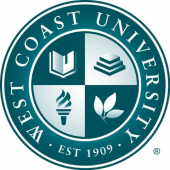
#29: West Coast University
West Coast University operates two campuses in Los Angeles – the North Hollywood nursing school and the downtown Center for Graduate Studies – with additional sites in Orange County and Ontario. The school’s modern campuses feature LEED buildings and state-of-the-art simulation centers. Traditional BSN and LVN-to-BSN degree programs are available in all three cities. The BSN program has grown rapidly since its recent launch, with over 1,000 graduates in each of the past five years. During that timeframe, WCU students have averaged an impressive 91% first-time pass rate on the NCLEX licensure examination. The university also offers a wealth of online nursing programs including RN-to-BSN, RN-to-MSN, four MSN tracks, and an FNP certificate.
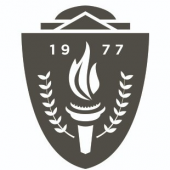
#30: MGH Institute of Health Professions
The MGH Institute of Health Professions is always innovating. In 2007, its School of Nursing was one of the first four institutions in the country to create an accredited DNP program. The school introduced a holistic Mind Body Spirit program in 2011 and a Global Health Nursing certification program in 2013. More than 80% of the school’s faculty members possess a doctoral degree. MGH Institute students perform very well on licensure and certification exams. Prelicensure BSN students have achieved an 87% first-time NCLEX pass rate over the past decade, while their counterparts in the direct entry MSN program scored a 91% first-time pass rate over that time period. Advanced practice students perform similarly well on their APRN certification exams.
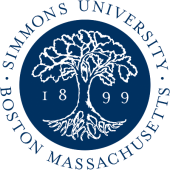
#31: Simmons University
Simmons’s low student-to-faculty ratio allows it to concentrate on strong, clinically based baccalaureate, master’s, post-master’s, and doctoral programs in nursing. Simmons students can also take advantage of Boston’s Longwood Medical Area, which features 21 renowned medical and academic institutions in their immediate backyard. The school graduates approximately 200 students annually from its prelicensure BSN program, with a strong 93% NCLEX pass rate over the past decade. Simmons’s direct entry MSN program graduates an additional 30-50 students annually. It has boasted a phenomenal 98% NCLEX pass rate over the past decade, with six out of ten cohorts scoring a perfect 100% pass rate.
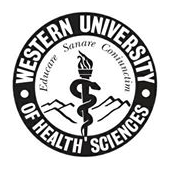
#32: Western University of Health Sciences
The College of Graduate Nursing at Western University of Health Sciences launched the nation’s first online curriculum for family nurse practitioners. The school also established the first DNP and direct-entry MSN programs in Southern California. CGN’s direct-entry MSN students have passed the NCLEX exam at a strong 92% rate over the past decade. In addition to direct entry, the MSN program offers a bridge option for RNs with an associate degree in nursing. MSN students can choose to specialize as administrative nurse leaders, clinical nurse leaders, ambulatory care nurses, or family nurse practitioners. A post-master’s FNP certificate is also available.
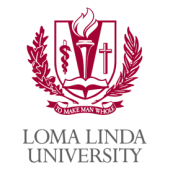
#33: Loma Linda University
At Loma Linda University, students have access to the largest medical simulation center in the United States. They are also proximally located to Loma Linda University Medical Center, which hosts some of the nation’s largest clinical programs. Undergraduate pathways include the traditional BSN, accelerated BSN for non-nursing degree-holders, LVN-to-BSN, and RN-to-BSN. LLU graduates more than 150 students annually from its prelicensure BSN pathways, with a solid 89% first-time NCLEX pass rate over the past decade. The university also offers MSN tracks for aspiring CRNAs, nurse administrators, and nurse educators, in addition to DNP and nursing PhD programs.
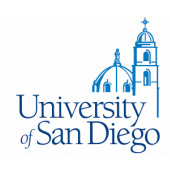
#34: University of San Diego
U.S. News & World Report consistently ranks USD’s Hahn School of Nursing and Health Science in the top tier of graduate nursing schools. USD offers a direct-entry MSN option for non-nurses; this pathway graduates 50-60 new nurses each year and has maintained a 92% NCLEX pass rate over the past decade. Existing nurses can pursue an MSN in eight different areas of emphasis, a DNP with two entry points (post-BSN, post-MSN), or a PhD with three entry points (post-BSN, post-MSN, post-DNP). In addition to a diverse collection of graduate offerings, Hahn provides the opportunity to participate in international mission trips to Haiti and the Dominican Republic.

#35: University of Scranton
Established in 1984, Scranton’s Department of Nursing draws from its Jesuit roots and offers nursing education with a strong base in the liberal arts. The department offers traditional BSN, RN-to-BSN, LPN-to-BSN, MSN (with four specialty tracks), and DNP programs. Students benefit from small class sizes and a strong clinical focus, with clinical experiences beginning during sophomore year. Indeed, Scranton’s BSN graduates have passed the NCLEX licensure exam at an impressive 93% rate over the past decade. Undergraduates also have opportunities for research, study abroad, and participation in domestic and international service trips.
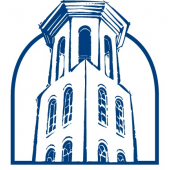
#36: Belmont University
Belmont University’s School of Nursing has program options for students new to nursing, RNs looking to complete their baccalaureate education, and seasoned nurses seeking career advancement. Undergraduate offerings include a traditional four-year BSN, an accelerated BSN, and an RN-to-BSN program. Belmont graduates 100-150 prelicensure BSN students each spring, who have posted an impressive first-time NCLEX pass rate of 90% over the past decade. Graduate options include MSN, post-bachelor’s DNP, and post-master’s DNP programs. The School of Nursing provides several innovative opportunities in its curriculum, include the Cambodia Study Abroad Program and the Nursing Christian Fellowship.
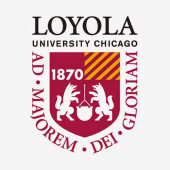
#37: Loyola University Chicago
In 1935, Loyola University Chicago was the first Illinois university to offer a BSN degree. Today, the Marcella Niehoff School of Nursing offers undergraduate (BSN), master’s (MSN), and doctoral (DNP and PhD) nursing programs. More than 85% of the school’s full-time faculty have doctoral degrees. Loyola’s BSN graduates have scored an impressive NCLEX pass rate of 92% over the past decade. Community outreach is a priority for the school, and it operates two nurse-managed centers that also serve as clinical sites for student practice.
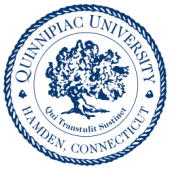
#38: Quinnipiac University
With a 12:1 student-to-faculty ratio that beats the national average of 15:1, Quinnipiac University allows students closer interaction with faculty. USA Today has named Quinnipiac one of the top ten places to earn a nursing degree in the country. The school’s flagship bachelor of science in nursing (BSN) program graduates well over 100 students annually from its traditional four-year pathway. Another 50 students graduate from the accelerated BSN program each year. Quinnipiac students have passed the NCLEX exam at a solid 90% rate over the past decade, including an impressive 93% pass rate for the accelerated BSN program. Quinnipiac also offers an online BSN for registered nurses and a full slate of graduate degrees and certificates.
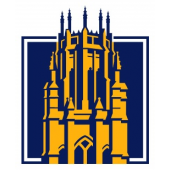
#39: Marquette University
Founded in 1936, the College of Nursing at Marquette University has more than 7,000 alumni and educates approximately 350 nursing students annually. The college offers BSN, MSN, post-master’s certificate, DNP, and PhD nursing programs, with a low 8:1 student-to-faculty ratio across all clinical settings. Graduates of the school’s flagship BSN program have passed the NCLEX exam at an 89% first-time rate over the past decade, including a near-perfect 99.7% first-time pass rate in 2020. The College of Nursing is housed in 46,000-square-foot Emory T. Clark Hall, where students benefit from new facilities like the Wheaton Franciscan Healthcare Center for Clinical Simulation.
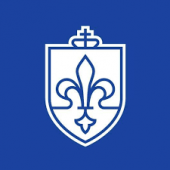
#40: Saint Louis University
The School of Nursing at Saint Louis University created the first accelerated BSN and comprehensive online MSN programs in the nation, the first accelerated MSN and nursing PhD programs in Missouri, and the first DNP program in St. Louis. SLU’s BSN graduates have maintained a strong NCLEX-RN exam pass rate of 90% over the past decade, well above both state and national averages. In addition to impressive licensure exam pass rates, Saint Louis University’s programs are nationally recognized for their innovative and comprehensive curriculum.
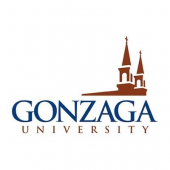
#41: Gonzaga University
Gonzaga University’s School of Nursing & Human Physiology offers a variety of baccalaureate, master’s, and doctoral nursing programs. Undergraduates can pursue a traditional prelicensure BSN. Admission occurs during freshman year and is highly competitive. Not surprisingly, BSN students perform exceptionally well on the NCLEX licensure exam, posting a 94% first-time pass rate over the past decade. Gonzaga’s MSN program is offered entirely online, featuring three entry points (traditional, post-ADN, second master’s) and three specialty tracks (health systems leadership, family nurse practitioner, psychiatric mental health nurse practitioner). The university offers two doctoral nursing programs: a doctor of nurse anesthesia practice (DNAP) ranked in the top 20 nationally by U.S. News & World Report, and an online DNP.
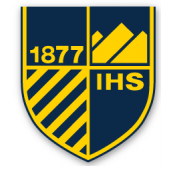
#42: Regis University
The Loretto Heights School of Nursing (LHSON) offers a broad range of nursing degree and certificate programs. Undergraduates can choose one of five BSN pathways: traditional, accelerated (for non-nursing college graduates), CHOICE (for individuals working in healthcare), RN-to-BSN, or RN-to-BSN/MSN. Across the three prelicensure pathways, BSN graduates have averaged a strong 92% NCLEX exam pass rate since 2012. The graduate nursing department provides MSN tracks in education, management, family nurse practitioner, and neonatal nurse practitioner, as well as graduate certificates in most of these fields. LHSON also leads a two- to three-year DNP program that students may complete 100% online.
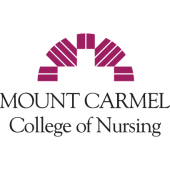
#43: Mount Carmel College of Nursing
Mount Carmel College of Nursing enrolls over 1,000 students and conducts one of the largest baccalaureate nursing programs in the state, with 200+ annual BSN graduates. Over the past decade, these students have passed the NCLEX exam at a 90% rate on their first effort. The college also offers an MSN program with four specialty tracks and a DNP program. Mount Carmel fosters ethnic diversity in its student body and emphasizes small class sizes and personal faculty attention. Students have easy access to hands-on learning at Mount Carmel West Hospital, located right on campus.

#44: Adelphi University
With more than seventy years of nursing education experience, the Adelphi College of Nursing and Public Health has twice been designated a Center of Excellence by the National League for Nursing. The college currently enrolls over 1,000 undergraduates and approximately 150 graduate nurses. Adelphi students benefit from small class sizes and strong collaboration with faculty. Approximately 250-350 BSN students sit for the NCLEX exam each year, and they have scored a 78% first-time pass rate over the past decade. The college also prides itself on the fact that approximately 90% of Adelphi master’s degree students gain employment within a year of graduation.

#45: Bradley University
Bradley University’s Department of Nursing offers two BSN pathways (four-year, accelerated) and three traditional MSN tracks (general, nursing administration, nursing education). The BSN program graduates 65-90 students annually and has maintained a remarkable 96% NCLEX pass rate over the past decade. Undergraduates learn from 22 experienced faculty and begin clinical experiences during sophomore year. Bradley’s traditional MSN program is complemented by its extensive online curriculum, including an RN-to-MSN bridge, two MSN concentrations (nursing administration, FNP), and two DNP concentrations (leadership, FNP). These online programs provide flexibility and easy access so that working nurses can improve their educational qualifications while in the field.
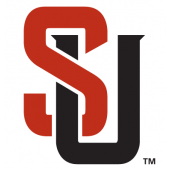
#46: Seattle University
The Seattle University College of Nursing offers a unique nursing curriculum that combines local and international nursing education. Students may take single academic courses abroad or enroll in a short- or long-term study abroad experience. Locations run the gamut from South America to Africa to Australia. The college offers a four-year BSN program as well as traditional and non-nurse immersion pathways to a DNP degree. Prelicensure students perform well on the NCLEX exam: over the past decade, 87% of BSN students and 94% of graduate immersion students passed the exam on their first attempt. Graduate students can choose from several nurse practitioner specializations, nurse midwifery, or advanced community public health nursing.
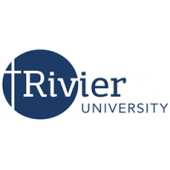
#47: Rivier University
Rivier University’s ASN, BSN, MSN, post-master’s certificate, and DNP programs are all accredited by the Accreditation Commission for Education in Nursing. Rivier students consistently perform well on licensure and certification tests. For example, ASN students have passed the NCLEX exam at a 92% rate over the past four years, while the first two BSN graduating classes scored a collective 99% NCLEX pass rate. MSN students have also consistently scored an 89-92% pass rate on both the FNP and PMHNP certification exams. All of these scores far exceeded the respective national averages. Rivier’s undergraduate programs are noted for their flexibility: students can pursue a part-time evening ASN, a traditional four-year BSN, or a flexible online RN-to-BSN pathway.
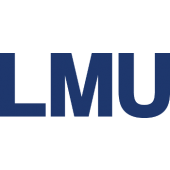
#48: Lincoln Memorial University
LMU’s Caylor School of Nursing offers programs across seven physical sites and a robust online platform. The school’s main campus in Harrogate offers ASN, BSN, and MSN programs. Three satellite locations offer ASN programs only: Alcoa, TN; Corbin, KY; and Physicians Regional Medical Center in Knoxville, TN. The Cedar Bluff site in Knoxville offers LMU’s BSN and MSN programs, while the Kingsport Center for Higher Education offers just the MSN program. A partnership with Florida Hospital provides accelerated ASN and BSN programs in Tampa, while the online platform delivers the school’s RN-to-BSN and DNP programs. LMU students from all campuses perform well on their licensure exams. For example, Tennessee graduates from the ASN program have scored a 93% first-time NCLEX pass rate over the past decade, while graduates from the BSN program have scored at a 95% first-time rate over the same timeframe.
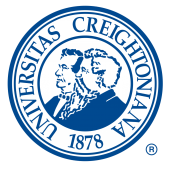
#49: Creighton University
The College of Nursing at Creighton University was the first nursing school in Nebraska to offer clinical nurse leader and doctor of nursing practice programs. The school also has MSN and post-graduate certificate programs, as well as both a four-year BSN and an accelerated BSN that can be completed in just one year. The college graduates between 150 and 200 BSN students annually, and they have achieved a 92% first-time NCLEX pass rate over the past decade. Just as impressively, Creighton’s graduate students typically score a 100% first-time pass rate on their nurse practitioner certification exams.
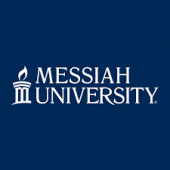
#50: Messiah University
The Department of Nursing at Messiah University recently constructed a state-of-the-art advanced simulation lab. This complements the school’s slate of newly renovated labs including a maternal-child lab, a psychiatric-mental health lab, two basic skills labs, and a physical assessment lab. Messiah also maintains contracts with a wide variety of excellent clinical agencies in the Central Pennsylvania area. In the university’s flagship BSN program, students have achieved an outstanding 97% first-time NCLEX pass rate over the past six years, including a perfect 100% pass rate for the classes of 2019 and 2020. Graduate nursing students can pursue an MSN degree with a nurse educator or nursing administration focus, a post-master’s certificate in either field, or a DNP degree with a family nurse practitioner or nursing leadership focus.
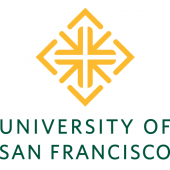
#51: University of San Francisco
The USF School of Nursing and Health Professions was the first California institution to offer a DNP for working nurses. The school also offers prelicensure BSN and MSN programs, an online MSN program with two entry points (post-ADN, post-BSN), and a traditional campus-based MSN program at several locations in the San Francisco and Sacramento metropolitan areas. USF’s combined “4+1” bachelor’s and master’s program culminates with an MSN-CNL, master of public health (MPH), MS in behavioral health, or MS in health informatics. Prelicensure students consistently perform well on their licensure exams: over the past decade, 88% of BSN graduates and 90% of direct-entry MSN graduates have passed the NCLEX-RN exam on their first try.
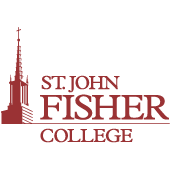
#52: St. John Fisher College
The Wegmans School of Nursing recently launched three new MSN specializations with an eye on the healthcare needs of the Rochester community: adult-gerontology primary care, adult-gerontology acute care, and psychiatric-mental health. The graduate nursing department also offers an M.S. in Mental Health Counseling and a Doctor of Nursing Practice, while the undergraduate department leads traditional BSN and online RN-to-BSN programs. Wegmans’ BSN students have passed the NCLEX exam at a solid 93% rate over the past decade.
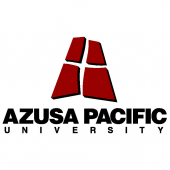
#53: Azusa Pacific University
Azusa Pacific University School of Nursing has a program for every career objective. Undergraduates can pursue a four-year BSN, an LVN-to-BSN bridge, an RN-to-BSN completion program, or the Two-Plus-Two BSN. The final option is a unique track designed for APU transfer students. Prelicensure BSN candidates have passed the NCLEX exam at a solid 84% first-time rate over the past decade. The university’s MSN curriculum features specialties in nursing education, school nursing, two clinical nurse specialist areas, and four nurse practitioner roles. Azusa Pacific University also offers a DNP program, a nursing PhD program, and eight post-master’s nursing certificates.
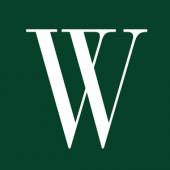
#54: Wagner College
In 2012, the Evelyn L. Spiro School of Nursing earned a coveted COE designation from the National League for Nursing. The school offers a traditional BSN, second-degree BSN, and RN-to-BSN completion program at the undergraduate level. It also offers MSN tracks for aspiring nurse educators and family nurse practitioners, a post-master’s FNP certificate, and a DNP program. Wagner produces more than 100 new BSN-educated nurses each year, and these graduates have passed the NCLEX exam at rates as high as 94% in recent years. Students learn at the Nursing Resource Center, which has a well-equipped high-fidelity simulation lab and a general skills lab.
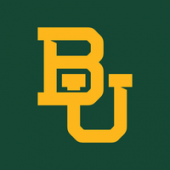
#55: Baylor University
Baylor University’s Louise Herrington School of Nursing was established in 1909 and later became one of the earliest baccalaureate nursing programs in Texas. Through its belief that nursing is a calling, the school prepares nurses by integrating faith and excellent academics. LHSON offers several baccalaureate pathways including a traditional program, a FastBacc® (one-year accelerated) program, and an online Distance Accelerated BSN. The university graduates between 250 and 300 BSN students annually, with an excellent 95% NCLEX-RN pass rate over the past decade. At the graduate level, Baylor offers an online DNP program with six tracks: executive nurse leadership, family nurse practitioner, neonatal nurse practitioner, nurse midwifery, pediatric nurse practitioner, and the U.S. Army Graduate Program in Anesthesia Nursing (USAGPAN).
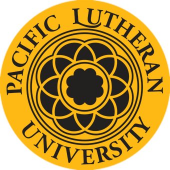
#56: Pacific Lutheran University
The School of Nursing at Pacific Lutheran University offers a top-tier MSN program with several entry points and specializations. Entry points include the traditional post-BSN program, an RN-to-MSN pathway for nurses with a bachelor’s degree in another field, and an entry-level program for non-nurses. Students can specialize as either an advanced generalist or a clinical nurse leader. The entry-level MSN program is select, admitting just 20-30 candidates each year, and its students have maintained an exceptional 94% NCLEX exam pass rate over the past decade. The School of Nursing also offers two BSN pathways – traditional and LPN bridge – as well as a DNP program that prepares aspiring family nurse practitioners and psychiatric-mental health nurse practitioners. Approximately 80 BSN graduates annually have averaged a 93% NCLEX pass rate over the past decade.
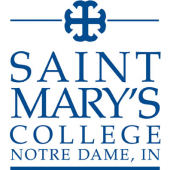
#57: Saint Mary’s College
The Department of Nursing Science at Saint Mary’s College offers three distinct nursing programs: traditional BSN, DNP with BSN entry, and DNP with MSN entry. With just 40-60 graduates annually, the BSN program is very selective. It also prepares students well for their licensure exams: over the past decade, 89% of graduates have passed the NCLEX exam on their first try. Students begin clinical experiences during sophomore year under the supervision of qualified faculty members in small classes. These experiences are facilitated by the school’s affiliations with local hospitals, long-term care facilities, health departments, and other community settings.
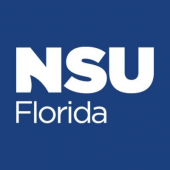
#58: Nova Southeastern University
Nova Southeastern University’s College of Nursing enrolls more than 1,300 students from coast to coast. Nursing programs are offered at the university’s primary campus in Fort Lauderdale, through satellite campuses in Miami and Fort Myers, and online. The prelicensure BSN program graduates more than 300 new nurses annually, who have passed the NCLEX exam at rates as high as 92% in recent years. NSU also offers RN-to-BSN and RN-to-MSN bridge programs through its undergraduate nursing department. Graduate nursing students can pursue three nonclinical MSN tracks, two clinical MSN tracks for aspiring nurse practitioners, an online DNP, or a PhD focused on nursing education.
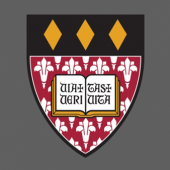
#59: Regis College
The Richard and Sheila Young School of Nursing at Regis College has received three consecutive NLN Center of Excellence designations since 2008. With small class sizes and four high-tech simulation labs, the school provides its students experience-oriented nursing education. Enrollees in the direct entry MSN program have passed the NCLEX licensure exam at a stellar 96% rate over the past decade. The school also offers a traditional four-year BSN, an RN-to-BSN program with two pathways (non-nursing bachelor’s, no bachelor’s), a postlicensure MSN program with ten specialty tracks (five in leadership, five for nurse practitioners), and a DNP program that is delivered both on campus and online.
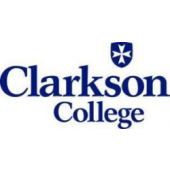
#60: Clarkson College
At more than 125 years old, Clarkson College was the very first nursing school in the state of Nebraska. It is also one of the few schools to provide a variety of in-demand bridge programs, including specific pathways like LPN-to-BSN, RN-to-BSN, and RN-to-MSN. In addition, Clarkson offers a traditional BSN degree, an MSN program with five specialty tracks – each of which is also available as a post-graduate certificate – and a DNP curriculum with four specialty tracks and a post-master’s pathway. The college typically graduates 100-plus prelicensure BSN students each year, with a phenomenal 96% first-time NCLEX pass rate over the past five years.
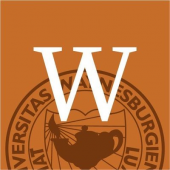
#61: Waynesburg University
Waynesburg University’s nursing programs are offered across the university’s four academic centers, allowing students greater flexibility. The university offers a traditional BSN along with RN-to-BSN, LPN-to-BSN, accelerated BSN, MSN, and DNP programs. Waynesburg maintains a small BSN graduating class of 40-50 students, and these nurses have passed the NCLEX exam at a stellar 98% first-try rate over the past decade. Nursing students at Waynesburg enjoy the recent addition of a state-of-the-art simulation lab.
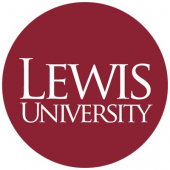
#62: Lewis University
The College of Nursing and Health Professions at Lewis University has forty years of experience educating nurses. Lewis offers a full range of nursing programs including traditional BSN, RN-to-BSN, MSN with six specialization options, a dual MSN/MBA degree, post-master’s certificates, and a doctor of nursing practice. The college graduates 110-140 prelicensure BSN students each year, who have achieved a remarkable 96% NCLEX pass rate over the past decade. Lewis students learn through one-on-one faculty interactions in state-of-the art simulation labs, and they experience diverse patient populations though the college’s 50+ clinical affiliations. Many courses are also offered online to accommodate a variety of schedules.
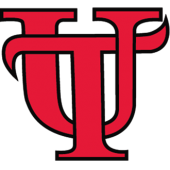
#63: University of Tampa
The University of Tampa’s College of Natural and Health Sciences offers three nursing programs: a traditional four-year BSN, an MSN with two nurse practitioner concentrations (family and adult-gerontology), and a DNP program designed for APRNs who are Florida residents. The BSN program has achieved a near-perfect 99% pass rate on the NCLEX-RN exam over the past decade, graduating approximately fifty students each year. The MSN program emphasizes the importance of holistic assessment, cultural congruency, and consumer inclusion in healthcare. The DNP program is conducted online with only three required visits to campus, allowing working students to continue their careers in clinical practice. The university maintains formal affiliations with more than 120 Tampa Bay-area healthcare facilities, providing students with a breadth of options for clinical exposure.
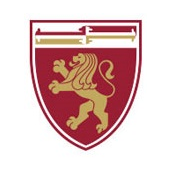
#64: Molloy College
Molloy College graduates a BSN class of approximately 300 students each spring, the second-largest such cohort in the entire state (after NYU). Molloy students perform well on their licensure exams, passing at a 92% first-time rate over the last four years. The college also offers a BSN degree completion program for RNs, as well as a unique dual-degree option that enables students to enroll in both undergraduate and graduate courses simultaneously. At the graduate level, Molloy offers seven distinct MSN tracks, nine post-master’s nursing certificates, and a highly regarded nursing PhD program.

#65: Nebraska Methodist College
Nebraska Methodist College has just one focus: healthcare education. The school provides programs both for students who wish to study on campus and for those who prefer to study online. Because of its singular focus and multiple delivery options, Nebraska Methodist offers one of the largest collections of nursing programs in the region. Degree options include several BSN pathways (traditional, accelerated, LPN-to-BSN, RN-to-BSN), three MSN specializations (educator, executive, informatics), and a DNP program with two focuses (family nurse practitioner, clinical nurse specialist) and two entry points (post-BSN, APRN). The college graduates 100-150 prelicensure BSN students each year, with a strong 94% NCLEX-RN exam pass rate over the past decade.
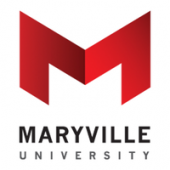
#66: Maryville University
The Catherine McAuley School of Nursing at Maryville University has a considerable collection of program offerings for aspiring nurses. Maryville offers traditional and degree completion BSN programs, as well as a fast-track BSN for students who have completed 65 hours of liberal arts and science coursework. Across the prelicensure BSN pathways, the school graduates approximately 125 students annually. They have consistently scored stellar marks on the NCLEX licensure exam, averaging a 92% first-time pass rate over the past decade. Maryville’s MSN and DNP programs have five specialty NP tracks: family nursing, adult-gerontology primary care, adult-gerontology acute care, pediatric nursing, and psychiatric mental health.

#67: Marymount University
The Malek School of Health Professions houses the Marymount University Department of Nursing. Each year, approximately 50 students graduate from the school’s traditional BSN program, while another 80-100 students complete the accelerated BSN program. Across these two pathways, graduates have passed the NCLEX-RN licensure exam at a strong 91% rate over the past decade. Marymount University also offers a hybrid online RN-to-BSN program, an MSN degree with a family nurse practitioner focus, and an online DNP program that requires just one on-campus component per semester. Clinical experiences and internships take place at some of Virginia’s leading healthcare organizations.
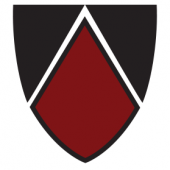
#68: Edgewood College
Edgewood College has awarded nursing degrees since 1983. The Henry Predolin School of Nursing recently launched a DNP program and now offers the full gamut of baccalaureate, master’s, and doctoral nursing degrees. The traditional BSN program graduates about 100 students each year. These individuals have passed the NCLEX exam at a 92% first-time rate over the past decade, including a stellar 99% first-time pass rate in 2019. Nursing students take advantage of the college’s clinical partnerships with over 70 facilities in southcentral Wisconsin, including University of Wisconsin Hospital and Clinics, American Family Children’s Hospital, and UnityPoint Health - Meriter Hospital.
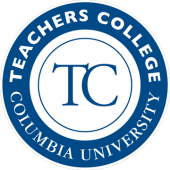
#69: Teachers College, Columbia University
Columbia University’s Teachers College has trained nurse education leaders since 1899. The college conducts programs for MSN-prepared and advanced practice nurses through its Department of Health & Behavior Studies. Teachers College’s doctor of education (EdD) in nursing education has a curriculum designed by nursing education experts and approved by the State of New York as an online offering. Doctoral students who would like clinical expertise in diabetes management may take advantage of the school’s diabetes education and management curriculum. The school also offers a five-course advanced certificate in nursing education specifically designed for doctorally prepared nurses.
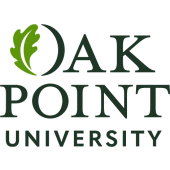
#70: Oak Point University
Oak Point University offers a broad range of degree pathways for aspiring nurses. Prelicensure students can enroll in the university’s traditional BSN program, which produces nearly 400 graduates annually. Oak Point’s BSN students have averaged an 80% first-time pass rate on the NCLEX-RN licensure exam over the past decade. Post-licensure students have several options, including RN-to-BSN, RN-to-MSN, traditional MSN, and DNP pathways. Oak Point offers four nurse practitioner specializations within its MSN program, as well as a nurse educator option. Two NP specializations are also available as post-master’s certificates. The DNP curriculum is specifically designed for the working professional, so the program is offered completely online. It consists of 32 semester hours and takes just six semesters, or two years of year-round study, to complete.
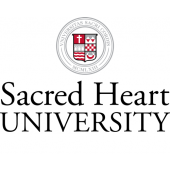
#71: Sacred Heart University
Drawing from its Catholic traditions, Sacred Heart University’s College of Nursing places a strong focus on community and service. Its state-of-the-art laboratory, furnished with a high-tech patient simulation system, lets students practice in a realistic and risk-free environment. Smaller classes and hands-on experience have helped the college’s BSN students to pass the NCLEX licensure exam at an impressive 95% first-try rate over the past decade. Sacred Heart also offers several graduate nursing programs, including MSN specializations for aspiring clinical nurse leaders, nurse managers, nurse educators, and family nurse practitioners.
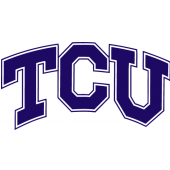
#72: Texas Christian University
TCU’s Harris College of Nursing & Health Sciences offers both a traditional BSN and a 16-month accelerated BSN pathway. The school graduates approximately 200 students annually across the two programs, and collectively they have achieved NCLEX exam pass rates as high as 97% in recent years. TCU’s online MSN program offers two clinical nurse specialist areas of focus, in addition to clinical nurse leader and nurse educator options. The university also leads a post-master’s DNP program for advanced practice registered nurses and nurse administrators, as well as a BSN-to-DNP family nurse practitioner track.
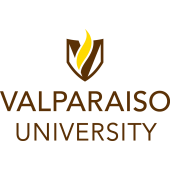
#73: Valparaiso University
Valparaiso University’s College of Nursing and Health Professions offers undergraduate students BSN, ABSN, RN-to-BSN, and RN-to-MSN options. At the graduate level, BSN-educated nurses may pursue an MSN with a focus on nursing education, a joint MSN/MBA program, or a DNP degree. Valparaiso graduates a prelicensure BSN class of 100-140 students annually. These RN candidates have scored a 92% first-time pass rate on the NCLEX licensure examination over the past decade. More than 60% of the faculty hold doctoral nursing degrees, and students enjoy access to state-of-the-art facilities such as the Virtual Nursing Learning Center and the SIM Center.

#74: Bryan College of Health Sciences
Bryan College of Health Sciences offers traditional BSN, RN-to-BSN, MSN, and DNAP programs. BSN students enjoy a low 6:1 clinical student-to-faculty ratio, more than 1,200 clinical hours (the highest in the state), and training experiences at Bryan Medical Center and 200+ other sites. BSN graduates have achieved an excellent 95% first-time NCLEX pass rate over the past decade, including a 99% pass rate in 2017, 2018, and 2020. The MSN program has two tracks (nurse educator and nurse leadership), a preceptor program with real-life situational learning, and a blended learning format that is conducted 75% online and 25% in-classroom. DNAP students also begin their clinical experiences very early in the program.
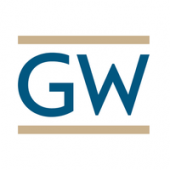
#75: George Washington University
Founded in 2010, George Washington University’s School of Nursing is already educating a diverse student body of more than 1,000 individuals. In 2018, the school was named an NLN Center of Excellence for enhancing student learning and professional development. Dual campus locations in Foggy Bottom and Ashburn are home to three premier skills and simulation laboratories. GW Nursing provides baccalaureate, master’s, and doctoral programs. The school has earned particular recognition for its online offerings, including its 100% online MSN program, from national publications like U.S. News & World Report.

#76: Seattle Pacific University
Seattle Pacific University’s School of Health Sciences has educated thousands of nursing graduates over the past eighty years. SPU students have access to clinical rotations at premier local institutions like Harborview Medical Center and Seattle Children’s Hospital. They can also engage in study abroad opportunities; past destinations have included Guatemala, Ireland, and Vietnam. The School of Health Sciences offers a traditional upper-division nursing major, an MSN program, and a recently launched DNP program. Undergraduates have enjoyed a solid NCLEX pass rate of 88% over the past decade. MSN students can choose from two specialty pathways (clinical leadership in practice, nurse educator), and DNP students can choose from three specialty pathways (clinical nurse specialist, adult-gerontology nurse practitioner, family nurse practitioner).
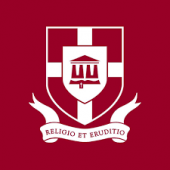
#77: Union University
The Union University School of Nursing offers well more than 15 different nursing programs. Undergraduates can pursue five pathways to a BSN degree: traditional, accelerated, LPN-to-BSN, RN-to-BSN, and a unique First Step to BSN program which helps adult students with few college credits earn their degree. The school graduates 130-170 prelicensure BSN students annually. These graduates have passed the NCLEX exam at a 94% rate over the past decade, well above the state and national averages. Union’s graduate nursing students can pursue one of six MSN tracks, six DNP tracks, or seven graduate certificates in nursing.
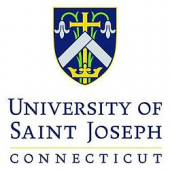
#78: University of Saint Joseph
A tight student-to-faculty ratio of 8:1 allows the USJ School of Health & Natural Sciences to provide students with intensive personal attention and guidance. It’s no wonder, then, that USJ routinely graduates BSN students with an NCLEX pass rate of 90% or higher. Interestingly, the traditional BSN is only available to women, while the accelerated second-degree BSN and RN-to-BSN programs are available to men as well. In addition to FNP master’s and online DNP programs, USJ also offers a post-master’s certification for psychiatric-mental health nurse practitioners.
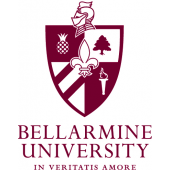
#79: Bellarmine University
The Donna and Allan Lansing School of Nursing and Clinical Sciences offers both a traditional four-year BSN and an accelerated second degree pathway. The school graduates 130-150 BSN students each year, who have scored an impressive 94% first-time pass rate on the NCLEX licensure exam over the past decade. The graduate nursing department offers an MSN with tracks in education, administration, and family nursing practice; an MSN/MBA dual degree; and a DNP with focuses in advanced nursing practice and executive leadership. Bellarmine offers study abroad programs in Australia and Sweden, service learning experiences in Appalachia and Guatemala, and overseas volunteer missions.
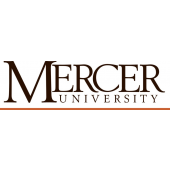
#80: Mercer University
Georgia Baptist College of Nursing conducts a breadth of nursing programs at Mercer University’s Atlanta campus. The school offers three BSN pathways (traditional, accelerated second degree, RN-to-BSN), three MSN tracks for aspiring nurse practitioners (family, adult-gerontology acute care, adult-gerontology primary care), and two doctoral degrees with a hybrid online format (DNP, PhD). Georgia Baptist College of Nursing is the second-largest Baptist-affiliated institution in the world, with access to more than thirty clinical sites for valuable hands-on experience. The college graduates 120-150 prelicensure BSN students each year, who have averaged a 92% first-time NCLEX pass rate over the past decade.
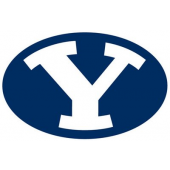
#81: Brigham Young University
BYU College of Nursing is home to nearly 400 nursing students from 38 states and four international countries. The college offers two degree pathways: a prelicensure BSN program for aspiring registered nurses and an MSN degree for aspiring family nurse practitioners. BYU awards approximately 100-125 baccalaureate degrees and a dozen master’s degrees in each academic year, and these nursing students achieve stellar test scores. The college’s BSN graduates have passed the NCLEX exam at a 94% rate or higher for an amazing eleven consecutive years, including a perfect 100% pass rate for the graduating class of 2018. Several recent MSN cohorts have also achieved a perfect 100% pass rate on the American Nurses Credentialing Center FNP certification exam.
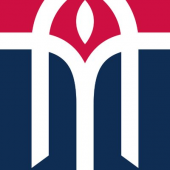
#82: DeSales University
DeSales University established the Department of Nursing and Health in 1974, along with its first BSN program. Today the school offers an abundance of undergraduate and graduate nursing programs. DeSales has both fulltime and part-time study options, and the school partners with more than 300 sites and preceptors to provide clinical experiences. Prelicensure BSN graduates have achieved a 93% first-time pass rate on the NCLEX exam over the past decade, including a 98% pass rate in the 2017-18 academic year. Moreover, MSN graduates have typically earned a 100% pass rate on national certification examinations across all tracks since the program’s inception in 1984.
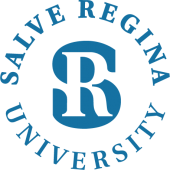
#83: Salve Regina University
The Department of Nursing at Salve Regina strives to develop nurses that are liberally educated and ethically grounded. There is a heavy emphasis on service learning: as part of their studies, students serve in soup kitchens, the YMCA, senior centers, legislative committees, free clinics, or the state food bank. Graduating BSN students have passed the NCLEX licensure exam at approximately a 90% rate over the past decade. Salve Regina also offers a joint bachelor’s / master’s program that confers a master’s degree in healthcare administration and management. The university’s Center for Adult Education in Warwick conducts a part-time BSN-to-DNP program, which awards an MSN degree with FNP focus as well as the terminal doctoral degree.
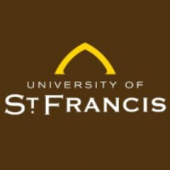
#84: University of St. Francis
USF’s Cecily & John Leach College of Nursing draws on its Catholic heritage of community service. The school offers a broad range of baccalaureate, master’s, and doctoral nursing degrees, including a popular RN-to-BSN bridge program for existing nurses with an associate degree in nursing (ADN) or hospital diploma. The school has a small graduating class of 60-90 traditional BSN students who consistently perform very well on the NCLEX licensure exam. Indeed, USF’s first-time NCLEX pass rate over the last decade has been an impressive 91%. Students have access to a virtual simulation laboratory, and they can take advantage of acute and long-term care clinical experiences in a variety of community settings.
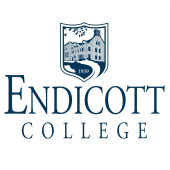
#85: Endicott College
Fully equipped laboratories, intensive clinical experiences, and small class sizes are several of the benefits that Endicott nursing students enjoy. A typical nursing class has between 10 and 36 students, and clinical groups average seven students per instructor. The BSN curriculum includes a minimum of 920 clinical practice hours, for which the school has an affiliation with 60 local healthcare facilities. In the final semester, an experienced preceptor mentors each student during a 144-hour internship. This hands-on instruction has helped Endicott’s BSN graduates pass the NCLEX exam at an 87% rate over the past decade. Graduate nursing students can choose from Endicott’s four MSN specializations, three post-master’s certificates, and a nursing PhD program.
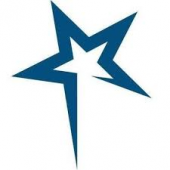
#86: Oklahoma City University
Kramer School of Nursing has programs for traditional undergraduates, career changers, and existing nurses seeking advancement. Undergraduate options include traditional BSN, accelerated BSN, and RN-to-BSN pathways. KSN also offers a unique program at Duncan Regional Hospital that provides financial aid in exchange for a two-year work commitment following graduation. Prelicensure BSN students have passed the NCLEX exam at an 89% rate over the past decade. The university’s MSN program has education, leadership, and CNL tracks, and its DNP program features an FNP specialization. In several recent years, 100% of KSN’s FNP graduates passed the American Association of Nurse Practitioners certification exam on the first attempt.
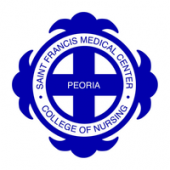
#87: Saint Francis Medical Center College of Nursing
As the only Catholic nursing school in Peoria, Saint Francis Medical Center College of Nursing is proud of its heritage. It offers students a range of programs including prelicensure BSN, RN-to-BSN, an MSN with eight specialty tracks, several post-master’s certificates, and a DNP taught predominantly online. Graduates from the college’s prelicensure BSN program have passed the NCLEX exam at an 86% rate over the past decade. The college provides students with hands-on clinical experiences and a low student-to-faculty ratio. Its recently renovated Nursing Learning Center is a state-of-the-art facility with four simulation laboratories.
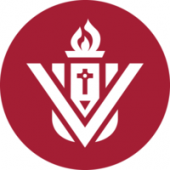
#88: Viterbo University
Viterbo University’s School of Nursing is a fully accredited institution that offers both undergraduate and graduate degrees. Over 600 nursing students are currently enrolled across the school’s four nursing programs: traditional BSN, RN-to-BSN, BSN-to-DNP, and MSN-to-DNP. The traditional BSN program graduates 100-130 new nurses annually, and these students have passed the NCLEX exam at a strong 92% first-try rate over the past decade. Nursing students have access to 35 fulltime and part-time faculty, a well-equipped clinical simulation learning center, and global education opportunities in Belize, Guatemala, Japan, and Korea.
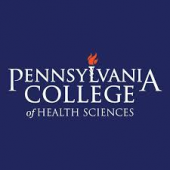
#89: Pennsylvania College of Health Sciences
Pennsylvania College of Health Sciences recently announced the launch of a three-year prelicensure BSN program, the first of its kind in the region. Meanwhile, the school’s existing full-time ADN program has graduated 200-300 students annually with NCLEX pass rates as high as 98% in recent years. PA College also offers an online MSN program with specializations in nursing administration and nursing education, as well as a hybrid post-master’s DNP that features a clinical affiliation with Penn Medicine Lancaster General Health. Students enjoy the college’s recently built 24.7-acre campus with state-of-the-art facilities.
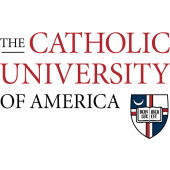
#90: The Catholic University of America
Established in 1935, The Catholic University of America’s Conway School of Nursing offers degree programs at both the undergraduate and graduate levels. The school has BSN tracks for traditional and second-degree students, four nurse practitioner MSN specialties, and both DNP and PhD pathways. Students in Catholic University’s nursing programs can gain clinical experience in over 100 local healthcare facilities, often with alumni preceptors. The school’s research-intensive doctoral program is located near preeminent research and health facilities, including the National Institutes of Health and the Institute of Medicine. Prelicensure BSN students have averaged a 91% first-time pass rate on the NCLEX examination since 2013, including a stellar pass rate of 98% or higher for the past three graduating classes.
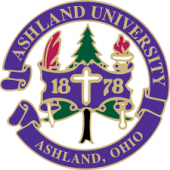
#91: Ashland University
The Dwight Schar College of Nursing & Health Sciences at Ashland University has nearly a dozen nursing program offerings. Undergraduates may choose from four BSN tracks including traditional, advanced entry, accelerated second degree, and online RN-to-BSN. Over the past decade, prelicensure BSN students have achieved a noteworthy 91% pass rate on the NCLEX licensure exam. At the graduate level, Ashland offers both BSN and MS/MSN entry points for its DNP program. Students entering post-BSN may specialize in family nurse practitioner or health systems leadership, while those entering post-MS/MSN may specialize in advanced practice nursing or health systems leadership. The college also offers certificates for aspiring school nurses and nurse educators. All graduate programs are offered online.
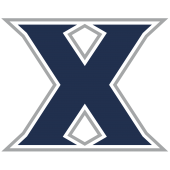
#92: Xavier University
The nursing program at Xavier University is one of just a handful of programs in the nation endorsed by the American Holistic Nursing Association. Students learn from faculty with a diverse range of specialties including epidemiology, natural health, gerontology, and occupational health. With an emphasis on improving medical care for the Hispanic community, Xavier’s nursing department has also created an exclusive program that specializes in educating nurses fluent in Spanish. Graduates of all programs perform well on their licensure exams. The accelerated BSN class scored a perfect 100% NCLEX pass rate in 2018, and the direct entry MSN program accomplished the same feat in both 2017 and 2019.
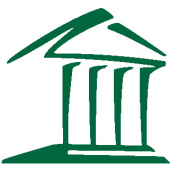
#93: Southern Adventist University
Southern Adventist University’s School of Nursing is housed in Florida Hospital Hall, a state-of-the-art center for nursing education. The school offers several prelicensure pathways including a traditional ASN degree, an LPN-to-RN bridge program, and a recently launched four-year BSN degree. Over the past decade, graduates of the associate degree program have maintained an 87% first-time pass rate on the NCLEX licensure exam. Registered nurses seeking further education can pursue an RN-to-BSN or RN-to-MSN completion program. The graduate nursing department leads MSN and DNP programs with numerous emphasis areas. Aspiring nurse practitioners can pursue primary care roles in adult-gerontology, family care, or psychiatric-mental health, as well as an acute care role in adult-gerontology.
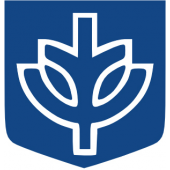
#94: DePaul University
DePaul’s School of Nursing was the first in Illinois to offer a two-year Master’s Entry to Nursing Practice (MENP) program for non-nurses. The school also conducts a traditional undergraduate BSN program, an RN-to-MSN pathway for nurses who hold an ADN or hospital diploma, and a DNP program with specializations for aspiring nurse anesthetists, family nurse practitioners, and adult-gerontology nurse practitioners. The MENP program graduates almost 200 students annually, with an impressive 90% first-time NCLEX pass rate over the past decade. DePaul’s pass rate on the nurse anesthesia certification exam has reached a stellar 100% in recent years. Students enjoy a network of more than 75 clinical sites and state-of-the-art facilities across two campuses in Lincoln Park and North Chicago.
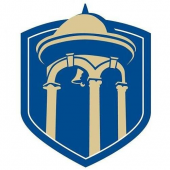
#95: University of Tulsa
The University of Tulsa’s Oxley College of Health Sciences has forged close relationships with three major metropolitan medical centers and a number of community healthcare agencies. The School of Nursing’s unique BSN program begins clinical experiences during the spring of sophomore year, which provides students five semesters to develop clinical skills instead of the usual four. The University of Tulsa has produced nearly 1,500 BSN graduates since 1973. The typical graduating class is small (perhaps two dozen students) and well-prepared for licensure, with a stellar 92% NCLEX pass rate over the past decade. Recently, the School of Nursing has added an RN-to-BSN track as well as a DNP program to better meet the healthcare needs of the Tulsa community.
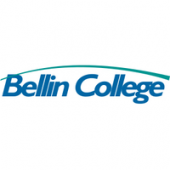
#96: Bellin College
Bellin College specializes in nursing and medical imaging education. Undergraduates can pursue several BSN pathways including traditional prelicensure, sophomore and junior transfer, an accelerated 15-month option, and RN-to-BSN completion. The college graduates approximately 100 prelicensure BSN students each year. Over the past decade, these students have averaged an impressive 94% first-time pass rate on the NCLEX licensure examination. At the graduate level, Bellin College offers an MSN degree with family nurse practitioner and nurse educator specialties. The nurse educator curriculum is available online. Bellin’s nursing programs are noted for their extensive clinical experiences and numerous service learning opportunities.
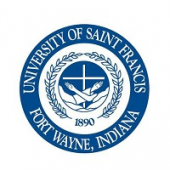
#97: University of Saint Francis
The University of Saint Francis offers a breadth of nursing degrees and pathways. Undergraduate options include an ASN program at both the Fort Wayne and Crown Point campuses, a traditional four-year BSN program, and a BSN completion pathway for working RNs. Over the past decade, USF’s ASN graduates have maintained an 87% pass rate on the NCLEX licensure exam, while BSN students have achieved an exceptional 93% pass rate. Graduate options include an MSN degree with an FNP focus, an RN-to-MSN transitional track, a BSN-to-DNP program in nurse anesthesia, and an MSN-to-DNP pathway focused on population health.
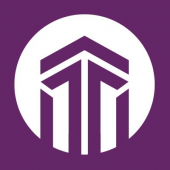
#98: Excelsior University
The School of Nursing at Excelsior University has been designated a Center of Excellence in Nursing Education by the National League for Nursing four consecutive times. The university’s online nursing degree programs include ADN, BSN, and MSN pathways. The ADN program is a prelicensure curriculum designed for practical nurses, vocational nurses, paramedics, and certain classifications of active duty military, National Guard, and Reserves personnel. This bridge program graduates more than 1,000 students annually, with approximately an 80% first-time NCLEX pass rate over the past decade. Excelsior’s RN-to-BSN program is a 121-credit-hour offering that can award students up to 61 credits for prior coursework and licensure examination completion. The university’s MSN students may pursue a specialization in education, informatics, or leadership and administration of healthcare systems.
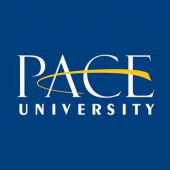
#99: Pace University
The Lienhard School of Nursing (LSN) at Pace University’s College of Health Professions offers its students learning opportunities by partnering with many well-known primary, acute, and tertiary care facilities and community agencies. LSN’s small class sizes ensure greater faculty attention, enabling BSN students to pass the NCLEX exam at a 90% rate over the past ten years. Across its two campuses in Pleasantville and New York City, LSN offers traditional and accelerated BSN programs for undergraduates as well as a variety of graduate degree and certificate programs.
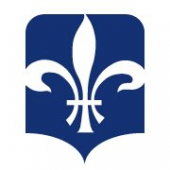
#100: Ursuline College
Ursuline was the first women’s college in Ohio and one of the first women’s colleges in the country. Its Breen School of Nursing maintains this tradition, educating female nurses in the following programs: traditional BSN, accelerated BSN, RN-to-BSN, traditional MSN, RN-to-MSN, and DNP. The school provides five distinct MSN tracks: adult nurse practitioner, family nurse practitioner, palliative care, adult-gerontology clinical nurse specialist, and nursing education. Approximately 75-100 students graduate annually from the four-year BSN program, and they have maintained a solid NCLEX exam pass rate of 88% over the past decade.
